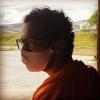Hello,
just registered to try to contribute exactly for this thread.
Have problems with learning and motivation from childhood (I am 37 now), self-diagnosed with SCT a couple of weeks ago, did some digging on what may fix that.
Found Strattera.
Now it's 6th day on Strattera (40 mg).
I think I never felt this good for 10 or maybe 15 years.
I am focused, I want to do anything to finish my tasks and little projects, and my rumination is almost gone!
I heard that many people do not feel good on Strattera right away (and are advised then to force themselves into it for at least two weeks for positive effects to kick in). That's not my case - and I hope (I PRAY) that it's not "placebo effect".
As for side effects:
- Strattera is known for causing urinary and sex problems. Well, I am experiencing benefits only in this field - my act is prolonged and erection is much better. No ED up to now

- regarding suicidal tendencies - I feel safe here. I NEVER had ones before, even during my depression period, and I am 100% sure that it would be sooo uncommon to me to think seriously about it, and I will be able to catch myself before doing something bad. I understand that I am probably wrong here

but I am willing to take this risk.
My little history and some details are described here (same nick):
http://www.addforums...t=25541&page=33I wrote there why I think I have SCT.
What I am taking now:
- Strattera 40 mg - 1x daily
- gingko 36 mg + some other components - 3x daily (morning, lunch, and ~16:00). Energises me great without over-stimulation.
- caffein - 3-4 espresso daily. I like it!

- L-thyrosine (Jarrow) - 500 mg twice a day, one as I get up (on emtpy stomach), one at approx. 15:30. I've literally got "high" (exactly as from cannabis) when I once took 2x500mg Thyro in the morning and high is not my purpose anymore.
- 5-HTP - 2x100mg in the evening, for better sleep.
- soy lecitine - apprx.2-4 grams daily.
I suspect that my cycle of action-and-reward does not work as expected, but until Strattera I just had no strength to spin this wheel in proper direction. Now I am paying much effort to my energy (I plan to strengten my sleep routine first and then to start exercise to get even more energy).
I never planned to use strong stimulants like amphetamines because I just know that it stimulates wrong part of me. On it, I think I will do improper things... faster.
There is another thing that literally triggered me in this thread: when Stinkorninjor wrote about punishment sensivity. That thing hits me so much. :( Parents, spouse, friends... I am so afraid of doing something wrong and be blamed for it that it literally cuffs my arms and legs :( But I hope to overcome it, in time.
I am not sure do I contribute anything positive in the thread?

Please let me know, cause I am also afraid of being annoying.


















































